The surge in GPT-powered apps, survey platforms, and play-to-earn websites is of best interest in online reward programs. Among them, Freecash lets you earn money by completing simple tasks, surveys, or downloading apps. But while it promises fast payouts and low entry barriers, is it truly safe to use?
Some users successfully cash out with PayPal or crypto, while others complain about frozen accounts and rejected withdrawals. So, is Freecash legit? Or are these “free” earnings just bait to waste your time? Let’s unpack everything in detail.
What is Freecash?
Launched in 2020, Freecash.com is a GPT (Get Paid To) platform that pays for engaging with partner offers, including:
- Filling out surveys
- Downloading mobile apps
- Playing games
- Completing sign-up offers
It operates globally and allows you to withdraw rewards via PayPal, Bitcoin, Litecoin, Ethereum, gift cards, or even gaming credits like Steam and Fortnite V-Bucks.
According to Freecash’s own stats, users have withdrawn over $40 million in total, with thousands of active users earning daily.
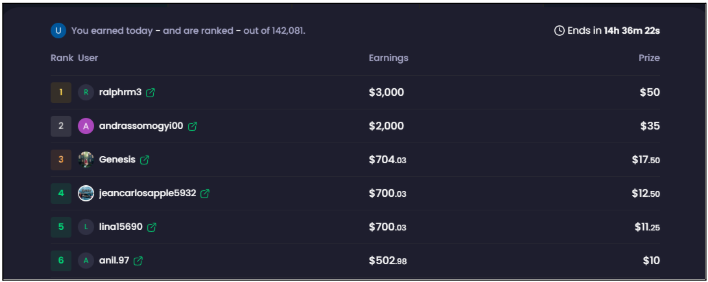
Is Freecash Legit and Safe to Use in 2025?
Yes, Freecash is a registered platform with HTTPS encryption, 2FA security, and partnerships with major ad networks like CPX Research and BitLabs. These elements confirm its legitimacy.
But the platform’s safety largely depends on how it's used. Most complaints are from third-party advertisers who reject tasks or collect excessive data, and from users unknowingly violating Freecash's terms.
Account bans, payment delays, or data privacy concerns can occur. So while Freecash itself is not a scam, the risk is in the details, especially the third-party offerwalls and how carefully users follow the rules.
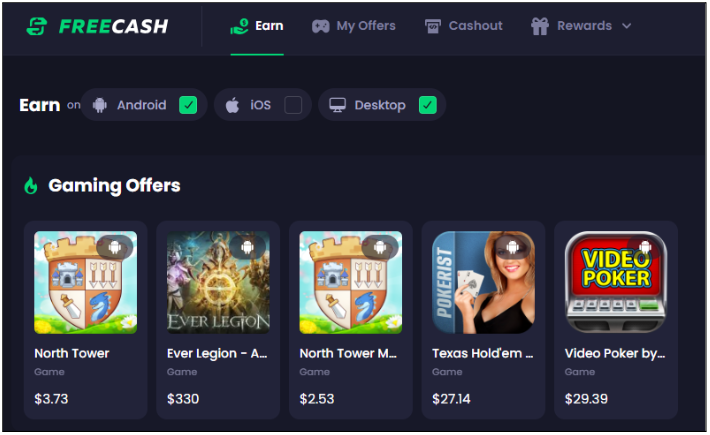
How Freecash Works: Points, Tasks & Payouts
Freecash rewards users with coins (1,000 coins = $1). Earnings come from completing tasks across different offerwalls.
Types of Tasks:
- Surveys (CPX, TheoremReach, BitLabs)
- App installs and in-game achievements
- Signup offers and trials
- Referrals (earn 5% to 30% commission)
Payout Options:
| Method | Min Payout | Speed |
| PayPal | $5 | 24 hours |
| Bitcoin | $10 | Instant |
| Gift Cards | Varies | Instant–24 hrs |
| Litecoin/ETH | $1–$5 | Instant |
Most users earn between $1–5 per day, but high earners rely on app offers and referrals to reach $100+ monthly.
Real User Reviews: Success Stories & Red Flags
When it comes to understanding whether Freecash is truly legit, the best place to start is with real user experiences. Platforms like Trustpilot and Reddit are packed with people sharing their wins, frustrations, and everything in between.
Many people highlight just how fast and seamless Freecash payouts can be. Some say they received PayPal or crypto payments within minutes, especially when using Bitcoin or Litecoin. The daily leaderboards, achievement bonuses, and mobile-friendly design also get a lot of love. It’s clear that if you know how to work the platform and stick to legit offers, Freecash can deliver consistent micro-earnings.
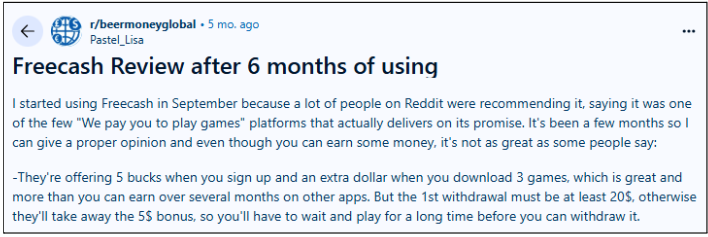
But not every time!
Several recurring complaints show up across Reddit threads and review platforms. One common issue is tasks not crediting properly, especially after completing app offers or long surveys. Others report being disqualified from surveys halfway through, even after spending several minutes answering questions.
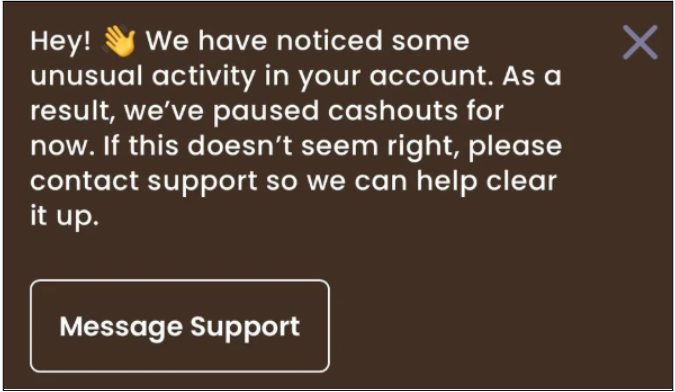
Perhaps the most serious concern involves account bans right when users reach the minimum payout threshold, often without clear explanations. To make matters worse, customer support isn’t always responsive, which leaves users in a bit of confusion.
On Trustpilot, Freecash holds a solid 4.6 out of 5 rating, based on tens of thousands of reviews. That’s impressive for a GPT site. But on Reddit, particularly in communities like r/beermoney and r/FREECASH, you’ll find a clear picture. Some users post screenshots of successful payouts and helpful earning tips, while others issue warnings about shadow bans or suspicious task rejections that feel algorithmic and impersonal.
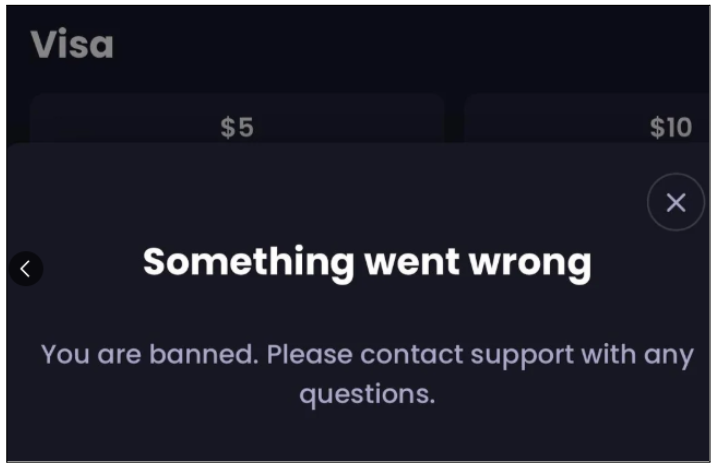
So, Freecash can pay, and many users swear by it. But the platform isn’t perfect, and if you’re not careful, or if you trip an automated fraud detection system, you might run into frustrating roadblocks.
How to Avoid Getting Scammed or Banned on Freecash
Earning on Freecash can be rewarding, but it's not without risks. Many users lose their earnings due to simple mistakes or violations they didn’t know existed. Here’s how to stay on the right side of the rules and protect your account from bans or scams.
- Use one account only. Multi-accounting gets flagged.
- Never use free VPNs, rooted devices, or emulators.
- Always read task conditions before starting.
- Keep screenshots or screen recordings for proof.
- Complete surveys honestly to avoid disqualification.
Freecash uses automated fraud detection, which can sometimes ban legitimate users. If
banned, recovery is difficult unless you have strong proof and a clean activity history.
Is Your Data Safe on Freecash?
Freecash collects your email, IP, and device ID. While the platform follows encryption standards, the actual privacy risk lies in external survey providers who may:
- Track behavior through cookies and device fingerprinting
- Ask for detailed demographics
- Redirect you to third-party websites

To protect your data:
- Use a burner email for survey logins
- Avoid surveys requiring phone numbers or sensitive details
- Choose crypto payouts for added anonymity
Freecash vs Other GPT Platforms
How does Freecash stack up against long-time players like Swagbucks, ySense, or InboxDollars? Here's what to look out for:
| Platform | Earning Potential | Payout Speed | Scam Risk |
| Freecash | High (with referrals) | Fast | Medium |
| Swagbucks | Moderate | 2–3 days | Low |
| InboxDollars | Low | 3–7 days | Low |
| Qmee | Low | Instant | Low |
| ySense | Moderate | 1–2 days | Medium |
Freecash offers faster payouts and higher-paying app offers, but it's also more volatile and stricter on account activity.
Freecash Disputes & Missing Reward Issues
Freecash doesn’t issue refunds. All disputes are handled by the offerwall providers.
Steps to File a Dispute:
- Go to Offerwall > History > Report Issue
- Upload proof (screenshots, timestamps)
- Wait for 3–7 days
Disputes are often denied without evidence or if the task terms were unclear. For critical offers, record your screen while completing the task.
4 Most Common Freecash Scams
Freecash is a legitimate platform, but some of the third-party offers it hosts can be misleading or outright exploitative. These aren't scams run by Freecash itself, but rather by advertisers trying to game the system. Here are the most common traps to watch out for:
- Fake Tracking Apps
These offers require you to install a mobile app, promising coins once you open or use it. But after completing the steps, no credit shows up. The app may never "ping" back to the offerwall, making it impossible for you to prove completion. In some cases, the app doesn’t even track usage properly; it’s just a way to inflate install numbers.
- Impossible Game Levels
You've probably seen tasks that offer huge rewards for reaching Level 20 or completing a certain in-game objective. What they don't tell you upfront is that reaching that level often requires days of play, or worse, in-app purchases to progress. Some games are designed to stall your progress right before the milestone, ensuring you either quit or spend money.
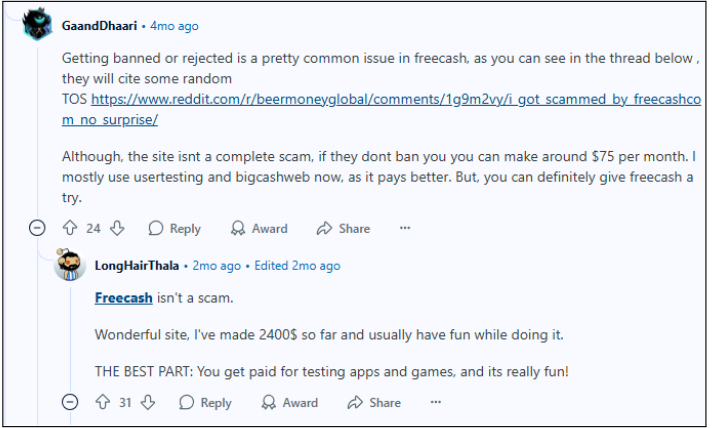
- Sign-up Offers with Auto-Renewal
Some offers invite you to sign up for a "free trial" of a product or subscription. What’s buried in the fine print is that these trials come with auto-renewing payments, which begin charging your card after a few days or weeks. Many users forget to cancel in time, only to find recurring charges on their bank statements.
- Region Locked Content
Certain offers may appear in your dashboard but are not available in your country. You might complete the entire task only to be denied credit because the campaign was region-locked. There’s usually no warning until it’s too late, and you’ve already wasted your time.
How to Earn More Safely on Freecash
If you're serious about making money on Freecash without wasting time or risking account issues, you must:
- Prioritize high-paying app offers with milestone-based payouts. These usually credit reliably and offer better value for your time.
- Avoid offers that ask for credit card info or push paid subscriptions, which lead to surprise charges or failed credits.
- Use referrals smartly; YouTube reviews, Reddit threads, or Discord groups are great ways to attract users without spamming.
- Log in daily to collect streak bonuses, complete daily tasks, and climb the leaderboard for extra coin boosts.
- Withdraw small amounts frequently, especially when you reach payout thresholds. It minimizes losses if issues arise.
- Enable an ad blocker while browsing tasks to avoid clickjacking, fake redirects, or malicious pop-ups that could compromise your account.
Final Verdict: Is Freecash Worth It?
Yes, but only if you’re informed, cautious, and realistic. Freecash pays reliably and offers high-earning potential through tasks and referrals. But there are pitfalls: task rejections, account bans, and a lack of centralized dispute support make it a platform that needs caution.
Frequently Asked Questions
-
Is Freecash legit or a scam?

Freecash is a legitimate platform, but strict policies and unreliable third-party partners mean users must proceed with caution.
-
Why didn’t I get paid on Freecash?

You may have missed a task requirement, uninstalled too soon, or your activity was flagged as suspicious. Always keep proof to claim your payment in uncertain circumstances.
-
What’s the fastest way to cash out in Freecash?

Bitcoin and Litecoin offer near-instant payouts. PayPal takes longer but is more widely used.
-
Can Freecash ban you without warning?

Yes. Automated systems may flag behavior, and appeals are rarely successful without strong evidence. So it is better to stay cautious.
-
Is it safe to do credit card trials while on Freecash?

It’s not recommended unless you’re prepared to cancel before the trial ends. Use virtual cards when possible.



